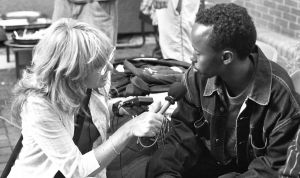 A quick Google search for ‘plagiarizing quotes’ or ‘plagiarism of quotes’ yields a plethora of results, however, most of the results are related to quotes about plagiarism. There is nearly no information out there on plagiarizing quotations; instances where individuals have plagiarized other authors through the use of their quotations.
A quick Google search for ‘plagiarizing quotes’ or ‘plagiarism of quotes’ yields a plethora of results, however, most of the results are related to quotes about plagiarism. There is nearly no information out there on plagiarizing quotations; instances where individuals have plagiarized other authors through the use of their quotations.
The standard quotation guidelines require a journalist to use quotation marks in reference to words from another individual, as well as the inclusion of a reference to the source in the sentence or paragraph. Beyond that, it should be fairly straightforward as far as utilizing quotes. However, is it possible to misrepresent who actually conducted the interview?
The recent case of Johann Hari of the UK’s Independent shows that a journalist can run into plagiarism problems when improperly utilizing quotes. Hari recently admitted to copying quotes from other interviewers to make his own material more complete on the same interview subjects. Not only did Hari copy the quotes without giving credit to the actual interviewers, but he also posed the quotes as if he had conducted the interview himself. Hari adds pre and post quote descriptions that make it seem like he actually was the interviewer, as opposed to simply citing the quotes from their original source, which is conventional practice.
After denying and defending his misconduct for a number of months, Hari finally admitted that the practice was deceitful. In the past, other journalists have also run into trouble with quote misrepresentation and fabrication. The most infamous case involved former New York Times reporter Jayson Blair, who plagiarized quotations from the Washington Post as well as fabricated quotations from scratch. The fallout from this case was widespread, destroying Blair’s career and permanently tarnishing the reputation of the New York Times.
Although the caveats of interviewing and quoting can seem complex, they basically come down to the same ethics of most plagiarism problems. If there is a time when you think you should cite sources or reference others – do it. In Hari’s case, he first defended that his use of other reporter’s quotes was legitimized because he needed to clean up his own interview quotes which were filled with “ums and ahs.” Hari emphasized that there are “conventions that let you do that.”
Hari then recently backtracked on his defense. From the Guardian’s Lisa O'Carroll: “In his apology, he said he admitted that was wrong to say the practice of substituting quotes gained through a face-to-face interview with other quotes was justified because it gave "the clearest possible representation of what the interviewee thought.””
Hari must have been pressured to apologize and admit wrong (by his employer), but somewhere, in the back of his head, he also surely knew that he was pushing the bounds of journalistic integrity.
Citations
O'Carroll, Lisa. "Johann Hari apologises over plagiarism and hands back Orwell prize." The Guardian. September 14th, 2011. http://www.guardian.co.uk/media/2011/sep/14/johann-hari-apologises-orwell-prize
Gunter, Joel. "Is there a better way of doing this?: Johann Hari responds to plagiarism accusations" June 28th, 2011. Journalism.co.uk. http://blogs.journalism.co.uk/editors/2011/06/28/is-there-a-better-way-of-doing-this-johann-hari-responds-to-plagiarism-accusations/
Wikipedia. "Jayson Blair." August 23rd, 2011. http://en.wikipedia.org/wiki/Jayson_Blair.
Related
Topics: Best Practices